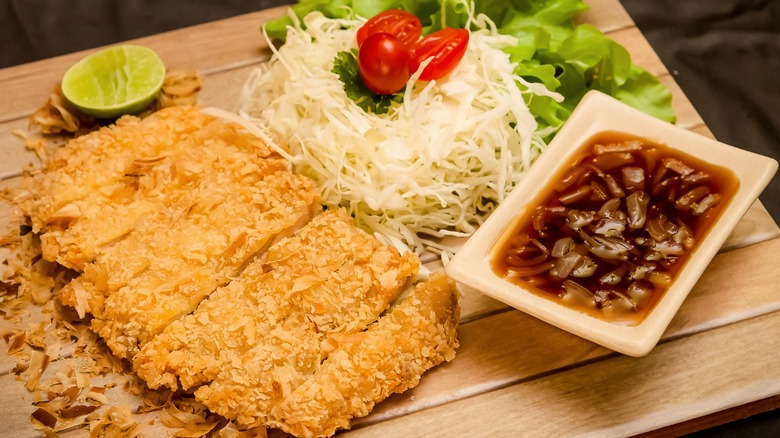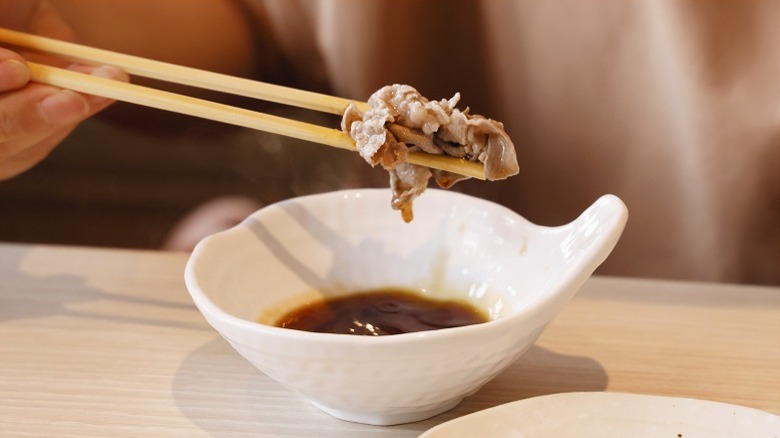The Citrusy Japanese Sauce Your Fried Foods Have Been Missing
We may receive a commission on purchases made from links.
There are about a million ways to use soy sauce, and pairing it with fried foods is a must. Katsudon, shrimp tempura, and agedashi tofu all benefit from the robust umami taste of this sauce. Even non-Japanese dishes like country-fried steak and pulled pork sandwiches benefit from the deep flavor this condiment provides. If you're one of many fans of soy sauce, then you'll love its zesty relative, ponzu.
Ponzu is a citrus and vinegar sauce with an acidic but less salty taste than soy sauce. "Pon" comes from a Dutch word meaning "punch," and "zu" comes from "su," the Japanese word for vinegar. The word "ponzu" reflects the history of trade relations during the Edo period (1603-1868 C.E.), when the Dutch East India Company was the only major Western source of trade with isolationist Japan at the time. Ironically, there aren't any Dutch components in the recipe.
Ponzu is made from rice vinegar and yuzu (or a similar citrus), both of which are staple flavors in Japanese cuisine. Yuzu is a fragrant, super sour fruit you can find in anything from a citrusy nihonshu martini to frozen dessert novelties. The fragrance and sourness of yuzu combined with the strong, fermented taste of rice vinegar pack quite a punch on the tongue, so a little bit of this flavor goes a long way!
Ponzu packs a punch in any recipe
At base, ponzu is made of two simple ingredients — rice vinegar and citrus — so it's easy enough to make on your own. But it can be much broader. Some chefs make it with mirin, katsuobushi (dried skipjack tuna flakes), kombu (kelp), or a mix of all of the above. You can simmer all of these ingredients together in a pot and let them cool to prepare ponzu at home, making it a quick and convenient sauce to throw together any time.
In the United States, ponzu mostly refers to ponzu shoyu, which is when soy sauce is added to the mix. Most grocery retailers and Amazon carry the Kikkoman Ponzu Dressing & Sauce, with a lemon and soy sauce-forward flavor. Vegans and vegetarians might want to check the label of store-bought ponzu or ask Japanese restaurant staff to see whether their recipe includes the tuna flakes or not.
Ponzu is a versatile ingredient that brightens all sorts of meals, bringing out the best of fried dishes. Broccoli, napa cabbage, edamame, and root vegetables, served warm or cold, soak up ponzu to create a wonderful earthy flavor. Toss ponzu into a wok with stir-fried noodles or rice or pour it in a cold bowl of soba. This sauce also works in soup broths and seafood marinades, and it's an ideal dipping condiment for tempura, gyoza, and any panko-crusted katsu dishes like tonkatsu and torikatsu. If you're a fan of Japanese cuisine, ponzu will be your new best friend in the kitchen.

